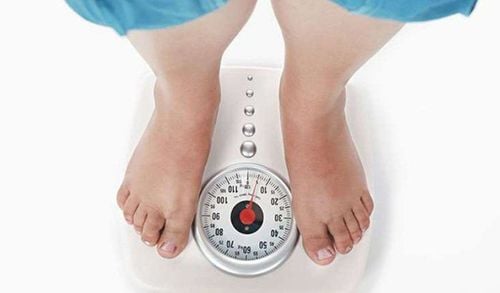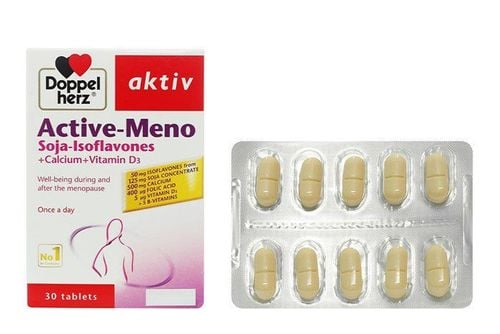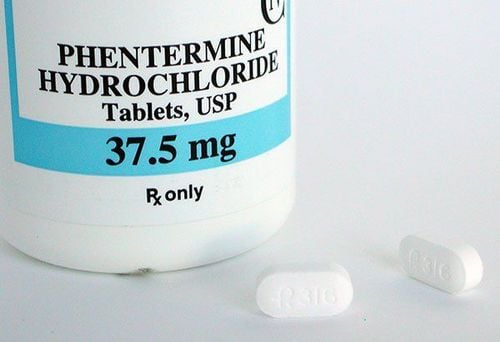This is an automatically translated article.
It can be tough to lose weight during menopause when hormonal changes, stress, and the aging process all make it difficult to control your weight. So how to lose weight during menopause?1. Why does weight gain often occur at menopause?
There are many risks that make you gain weight during menopause, including: Heart disease, diabetes and a number of other reasons. The accumulation of more and more fat in the abdominal area puts you at higher risk of these problems.Here are some of the reasons why you are more likely to gain weight during menopause , including :
Effects of estrogen : In animal studies, estrogen has been shown to help control body weight. With lower estrogen levels, animals tend to eat more and be less physically active. Reduced estrogen levels can also decrease the body's metabolic rate, the rate at which the body converts stored energy into working energy. Maybe the same thing happens to women when estrogen levels drop after menopause. Some evidence suggests that estrogen hormone therapy increases resting metabolism. This can help slow weight gain. A lack of estrogen can also make the body less efficient at absorbing starches and blood sugar, which will increase fat storage and make weight loss more difficult. Lack of exercise: More than 60% of adults do not exercise regularly, and this proportion increases with age. Besides, low-intensity exercise also makes it difficult for you to control your weight. Loss of muscle mass: Slows down the metabolism, making it easier to gain weight. Not getting enough sleep: Many women experience insomnia as they approach menopause. Insufficient sleep has also been linked to weight gain. Increased insulin resistance: As women get older, they become insulin resistant, which makes it even more difficult to lose weight at menopause. Furthermore, stored fat is transferred from the hips and thighs to the abdomen during menopause. This increases the risk of metabolic syndrome, type 2 diabetes, and heart disease in postmenopausal women. Therefore, measures that promote belly fat loss are especially important during this period.

Cân nặng quá mức có thể gây nguy cơ mắc bệnh tiểu đường tuýp 2
2. How to lose weight at menopause?
Here are some ways to help you lose weight during menopause, including:2.1 Cut calories
To lose weight, you need to cut a certain amount of calories. During and after menopause, the amount of calories burned during rest decreases.
A very low calorie diet will help you lose weight quickly, but this is not a good idea.
Research shows that restricting calories to low causes loss of muscle mass and further reduces metabolism.
So following very low calorie diets can help you lose weight quickly in a short time but their impact on muscle mass and metabolic rate makes it difficult in the long term weight loss.
Plus, consuming insufficient calories and rapidly losing muscle mass can lead to bone loss. This is what increases the risk of osteoporosis.
Research also shows that going on a "diet," such as reducing portion sizes rather than drastically reducing calories, may have more benefits for weight loss.
Building a healthy lifestyle helps you maintain your metabolic rate and reduce the muscle mass that is lost with age.
2.2 Eat a sensible diet during menopause
Here are three healthy diets that have been shown to help with weight loss during and after menopause.
Low-carb diets: Several studies have shown that low-carb diets are a great way to lose weight and reduce belly fat. On the low-carb diet, postmenopausal women lost 21 lbs (9.5 kg), 7% body fat, and 3.7 inches (9.4cm) waist circumference within 6 months. Furthermore, to lose weight, there is no need to reduce carb intake to a very low level. In another study, a low-salt diet that provided about 30% of calories from carbs reduced belly fat and weight more than a low-fat diet. Mediterranean Diet: Known to be the best diet in terms of improving health and reducing the risk of cardiovascular diseases,. Besides, studies also show that this is also a method to help you lose weight. In a study conducted in men and women 55 years of age and older, those who followed the Mediterranean diet experienced a significant reduction in belly fat. Vegetarian: A vegetarian diet also offers certain benefits in terms of weight loss. Some studies have shown that the application of a vegetarian diet helps support weight loss and significantly improves health for women in menopause. However, following a vegetarian diet that includes dairy and eggs has been shown to work well in older women.

Chế độ ăn chay cũng đem lại một số lợi ích nhất định trong việc giảm cân
Most people become more sedentary as they get older. However, exercise is essential to all of us, and it becomes even more important as you enter menopause. Regular exercise helps you improve your mood, control weight, reduce belly fat, protect muscles and joints.
Aerobic exercise (cardio) is also very good for women during menopause. Studies have shown that this method helps reduce belly fat while preserving muscle mass during weight loss.
2.4 Get enough sleep
Getting enough sleep is very important to help you achieve and maintain a healthy weight. People who sleep too little are more likely to be overweight. In fact, due to the impact of menopause, it is difficult for women to get a good night's sleep at this stage. Such as hot flashes, night sweats, stress and other physical effects of estrogen deficiency.
2.5 Psychotherapy and acupuncture
Cognitive behavioral therapy, a form of psychotherapy proven to help with insomnia, can help women experiencing the effects of concentration caused by low estrogen. Acupuncture may also offer certain benefits. Research shows that acupuncture reduces hot flashes in menopausal women. Another review also found that acupuncture can increase estrogen levels, help relieve symptoms caused by low estrogen levels, and improve sleep.
2.6 Reducing stress
Reducing stress is also important during menopause. In addition to increasing the risk of heart disease, stress can lead to elevated cortisol levels, which is linked to increased belly fat. However, some studies have shown that yoga can reduce stress and reduce symptoms in women going through menopause.
2.7 Some other ways to lose weight
Consume more protein: Protein helps you feel full for a long time, speeding up metabolism during weight loss. Eat fiber-rich foods: Consuming high-fiber foods like flaxseeds, Brussels sprouts, avocados, and broccoli can increase insulin sensitivity, reduce appetite, and promote weight loss. Drink green tea: The caffeine and EGCG found in green tea can help burn fat, especially when combined with exercise.

Trà xanh có thể giúp bạn đốt cháy chất béo, đặc biệt khi kết hợp với tập luyện
Gynecological examination Gynecological examination, breast examination Transabdominal ultrasound of uterus and ovaries Taking samples for cervical-vaginal cytology Mammogram (2 sides) Osteoporosis Measurement Perform other tests to detect premenopausal conditions, if any. To register for examination and treatment at Vinmec International General Hospital, you can contact Vinmec Health System nationwide, or register online HERE.
References: healthline.com, .health.harvard.edu, webmd.com
SEE ALSO
How long does the complete absence of menstruation take to be considered menopause? How does menopause affect women's health? Body changes during perimenopause and menopause













